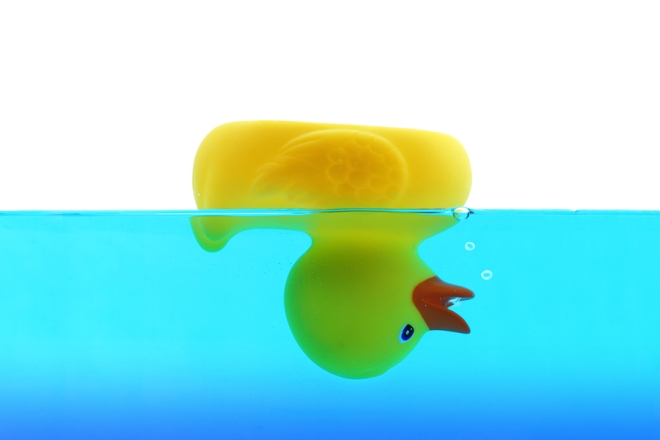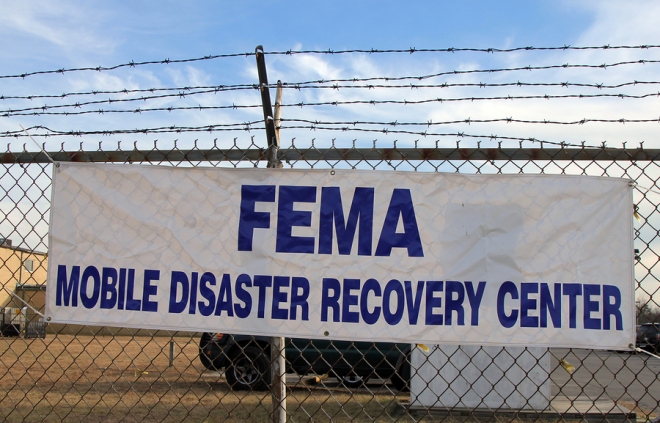
Loss is a hierarchy of values, unique to oneself, impossible to comprehend from the outside. Loss is layers of priority, woven intricately across your life, a tapestry of history, experiences, memories, possessions, ownership, and environment, withdrawn. It is exhaustion of the tiny treasures in your life, tangible and intangible, that soothe you, nurture you, buffer, energize and propel you. The greatest losses are intangible, impossible to grasp without heartstrings.
The survivors of the SuperStorm understand the hierarchy of loss. Loss for them focuses on home, their history hemorrhaging across a painting in progress by an artist concentrating on a date of completion, not the hues: loss upon loss wiped away as a mistake on the canvas, an intrusion in the gestalt, smeared by a cold hand without pulse.
I had a home. It was beautiful to me: pretty, muted pastels, soft fabrics, comfy pillows, cozy workspaces, solid wood furniture, functional, all that I needed. My home was memories: my children scribbling everyday adventures across the walls, carving their dreams into Mimosa they straddled, imaginations soaring, unfettered; rolling in fragrant grasses with abandon, looming green foliage affording security: inspiring me, delighting me, as they grew strong and tall, like the trees in my sweet garden. It was all that I wanted: all that I needed.
The rocks in my garden were collected from the world: fondled, contemplated, transported to this fertile land, their history intact, lovingly placed with deliberation and intention, substantial and validated. My garden reeked of mountains, forests, meadows, beaches, streams, waterfalls, oceans, and Indian preserves, with igneous, sedimentary, metamorphic. Smooth Florida ocean rocks, Nova Scotia conglomerates, river rocks from Maine rested beside Mermaid’s toenails from Noyack, vibrant sunset shells from Sanibel, slipper shells, spotted clams, olives, angel wings, paper figs, murex, whelk, curls, and conchs. I picked each up because it was special, like the people in my secret garden.
I nurtured a sweet garden so many years ago, to shelter my children from the busy street, to give them unspoiled acreage to own: before baseball and two-wheel bicycle rides to Jones Beach expanded their world into tomorrow. Those were years of innocence, when neighborhood children flocked to our verdant sanctuary, for a summer’s day of riding toys, sliding water fun and hours of good climbing trees, imagining and inventing, rehearsing tomorrow, dripping ice pops into the cool dark earth, dirty feet running across blankets of soft grass. Those summer days of noisy children with dirty hands in my garden, needing me, wanting beyond any place to be here with my children and their toys, lived on each morning, in songbirds summoning me to tall hedges with deep strong roots, and soaring climbing trees. Memory whispers timeless messages across the heart. How simple, yesterday.
Then came years when bikes turned into cars. Heavy traffic on the street triggered adapting the yard for greater functionality. A street, that had once been dead-end host of neighborhood softball games, now wrapped around the new Cedar Creek Park and down to Seaford Harbor Elementary School, providing access to marinas and taverns. Cars were being hit in the street regularly by drunks. I placed white rocks where the grass used to be and two toyotas slept peacefully through college.
In those days, Cedar Creek Park was a bone the County threw at homeowners who protested the County’s repurposing of the marshland stretching south from our homes all the way to the Great South Bay: a playground for fishing, bird-watching, romping and exploring, ecosystems wiped out, mutilated, usurped by local government, to create a bedroom for sewage tanks and a chemical plant to spew the oppressive stench of chemical sewage into the salty air at 2 a,m, each night, as infants sleep in their cribs.
On October 29, 2012, SuperStorm Sandy engulfed our neighborhood with raging floodwaters, spewing sewage that tore our lives apart. My house gulped down the putrid slime and puked up everything I owned: my secret garden stood resilient above the onslaught, quiet sentinel. And as spring breezes ruffled lush lacy foliage, I sat each day in my fragrant green sanctuary and believed in restoration and nesting.
FEMA, the government agency for Hurricane Sandy survivor’s assistance, let us all down: providing outlandishly low assistance grants, that made timely return home impossible. FEMA prefaced the assistance with, “You can do it with free help.” In reality, during such an extensive event, free help, any help, was virtually non-existent. The survivors were on their own: destitute, living in substandard, make-shift quarters, due to governmental failure. The Hurricane Sandy Recovery effort is a National Tragedy: America’s shame!
Temporary Housing was doled out by FEMA. People dropped out of Temporary FEMA Housing every day, not to go to HUD apartments or permanent housing, but to substandard private accommodations anywhere, just to get away from the bullying and constant threats of being thrown out by FEMA agents at their door.
So, under threat again of being thrown out of the Hotel by FEMA in three weeks, I accepted an eleventh-hour offer of free help from an international church group seeking a house to restore. They had a house to restore on Monday, but it fell through. Consequently, they had 10 volunteers coming from Alabama on Sunday. I was called on Friday by the Director, who outlined what they would do in my house: check the roof leak, and possibly patch it, empty insulation and toys from the attic, insulate the walls, and sheetrock. I asked if that was all. He said yes.
I trusted this group because they had gutted my house. They had been kind, thoughtful people, who seemed competent enough. They never overstepped their authority, in their past interactions with my house.
I pulled up to the curb, prepared to ease my accessible van between formidable hedges enclosing my ravaged, gutted home, as I did each day since the malevolent event. I was comforted by this precious remnant of my life left looming, strong, surviving, like me, the terrible storm: my yard, filled with shadows of squealing children from yesteryear. I spent hours here every day, nurtured by memories.
My van hesitated, then stopped. Oddly, I pulled up to the wrong house, one that was in the process of being bulldozed, it seemed. My internal navigation had failed. Clearly, the hedges I passed through each day to a restoration project limping along without funding, were not here.
No, my house was standing green and solid in front of me, clearly visible: naked, exposed, vulnerable, on a totally bald lot, sterilized, automobiles speeding past. My yard was obliterated. My garden, was mutilated, demolished, gone! The ground was still steaming. My eyes clouded over and bled profusely a lifetime lost. Loss upon loss pummeled me and I was overcome. Hope threw a lance through my heart and I bled out in the street. I was all gone. There was nothing left of me. Nothing left!
A mob of burly workers, were hacking, chopping, slicing, ripping up roots that were pulling back with 60 years of brute strength and cherished history, unwilling to yield the land of their birth, struggling against insanity. Strangers raked wet dirt over my white pebbles, standing on my rock garden, loading six-foot-long pivots into belching yellow dumpsters, to transport what was left of my life to some stinking landfill, my yard to wither in the hot summer sun, and die, unattended, unloved, the last vestiges of an unjust, uncaring world gone berserk.
I was empty. My world was only devastation and loss. Gasping green vines hung limp from the dumpster screaming my name. My heart shrieked so loud my head exploded and membranes rained down on the fragrant dirt, and soaked into my land. I could not breathe. It was armageddon. Goodness was gone.
A big, rough man with a pleasant face walked toward my car. A grey-haired woman stood on my oozing land, pointing, amid swinging blades: men with axes trashing my land without permission. Strong men struggled with massive roots that would not relinquish their right to survive and howled for me to save them. The violence smothered a field of white pebbles and smooth pink river rocks. They had obliterated every piece of foliage, every living thing, from the street to the windows: privet hedges, Roses of Sharon, Wisteria, Forsythia, mom’s American Beauty rose bushes, pachysandra, and oak trees my sons planted. The ground looked like it was put through a sifter. Insensitivity swallowed my past, sucking songbirds, purple violets and lily of the valley, sweet blooming Privet, through the jagged, closing chasm.
The man walked over and leaned against my van, resting his sweating arm across my mirror, “Wendy?” he said. I wanted to throw his arm off my property.
“What did you do?” I whispered, breathless. I was shocked, devastated, appalled. I did not understand. I felt faint, enraged, hopeless, terrified. “What did you do to my yard?”
He turned away from me, toward my raped land, and declared with callous disregard, “Looks good, doesn’t it!”
I wanted to tear his head off and smash it to the pavement, at his arrogance. His lack of feeling confirmed he was not human.
“Why did you do that!” I said. “You had no right!” I could find no words. It was too horrible. “This is my land.”
“It had to be done.” he said. “It looks better.”
“Better than what? You had no right. This is my property.” I insisted. Everything was spinning. I could not see, for the tears.
He stood there with his back to me admiring his delinquency.
“Is Grace here?” I mumbled.. She was an administrator: he was the foreman.
“She’s over there,” he pointed. He called to her, like nothing was wrong. She walked toward my van. I was slipping away.
“Hi.” she said cheerfully. She was an arrogant woman with a perennial smirk. I wanted to lunge from my van and strangle her, as she did my garden. I was face to face with the Devil.
“What did you do to my yard? “. I said. “How could you do that?”
“Your neighbors like it.” she smiled.
“You talked to my neighbors, but you didn’t call me?” I said. “Why did you do this? This is my property!”
“In this Program,” she said, “we must make the house better. This is better.”
“No! No, this is not better.” I said. “You trim a hedge, you don’t demolish a yard. You had no permission to touch my yard! This is my property! You had no right!”
The two stood against my van, ignoring me, prattling, “It looks good. This is the least of your worries. You should be grateful. People have a lot more to worry about than something like this. You have a lot more to worry about than this.” They were arrogant ego-maniacs, trampling on property rights and choice, in the name of charity. I was revolted by their smug self-righteousness.
There was nothing I could do: it was all gone! My ability to function, in a wheelchair, living alone, on a busy street, was gone! It was no longer safe, secure, or private. The damage was irreversible. As a person with multiple melanomas, there was no longer shelter from the sun. The firm rocky surface for my wheelchair, exists no longer. They didn’t get it!!!
I guess the church trashed my yard because they had 10 volunteers from Alabama with nothing to do. The building materials were not delivered until 3:15 p.m., long after my yard was demolished by men with axes. They obliterated my present and my past, to provide busy work.
I lost my home to a terrifying natural event. I lost my environment to terrifying control freaks feigning charity. Beware of do-gooders with axes! They will tear your heart out!


